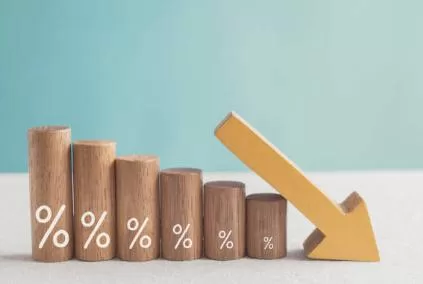How Can I Use Self Improvement To Improve My Finances?
Learn how to use self-improvement to enhance your finances.

Selfpause Affirmation App
Download the app to get 1,000’s of affirmation meditations and everything you need to write, record and listen to your own.
Handling your finances may be a difficult and frustrating endeavor. Including self-improvement in your financial life, on the other hand, can not only help you manage your money more successfully, but also improve your overall financial well-being. We’ll look at several techniques for utilizing self-improvement to enhance your finances in this article.
Improve Your Financial Literacy

The first step in utilizing self-improvement to better your finances is to learn about money. Financial literacy refers to the information and abilities required to effectively manage your finances. Understanding financial principles such as budgeting, saving, investing, and debt management is part of this. There are numerous resources available to assist you in developing financial literacy, such as books, classes, and online resources. You may make better financial decisions and prevent costly mistakes by enhancing your financial literacy.
Make a Budget
A budget is an essential component of financial management. A budget is a strategy for allocating your income and expenses. You can find areas where you can cut expenses, save money, and prioritize spending by preparing a budget. Keep track of your spending and change your budget as needed.
Establish financial objectives.

Establishing financial goals is a key step in improving your finances through self-improvement. Objectives allow you to focus your efforts and track your success. It is critical to be detailed and reasonable while making financial goals. Instead of aiming to “save money,” you could aim to “save $5,000 for a down payment on a house within the next year.” This objective is specific, measurable, and attainable.
Create a Savings Plan
Creating a savings plan is an essential component of financial management. Savings can help you create an emergency fund, plan for large expenses, and work toward long-term financial objectives like retirement. Make saving a priority in your budget, and think about setting up automatic savings transfers to make it easier to save consistently.
Debt Reduction

Debt reduction is a key aspect of financial management. Excessive levels of debt can cause a lot of stress and limit your financial options. Consider debt-reduction techniques such as loan consolidation, negotiating lower interest rates, and prioritizing high-interest debt. Avoid incurring new debt unless absolutely required.
Boost Your Earnings
Raising your salary might be an effective technique for improving your financial situation. Try income-boosting tactics such as negotiating a raise, looking for new career prospects, or starting a side business. Make careful to strike a balance between increasing your income and managing your spending, as well as keeping a healthy work-life balance.
Seek Financial Assistance

Getting financial counsel can be an extremely beneficial tool for managing your finances. Consider working with a financial planner or advisor who can assist you in developing a thorough financial strategy and providing financial advice. Make sure to select a credible and trustworthy financial advisor.
Exercise Self-Control
Self-discipline is an essential characteristic for financial management. It entails making deliberate decisions about spending, saving, and investing. Set spending limits, minimize impulse purchases, and keep focused on your financial goals to practice self-discipline.
Exercise Gratitude

Cultivating appreciation can help you manage your money better. Gratitude entails acknowledging your life’s riches and focusing on what you have rather than what you lack. This can assist you in resisting the urge to overspend or engage in materialistic behaviors. Consider journaling, meditation, or regular expressions of appreciation as ways to practice thankfulness.
Finally, self-improvement can be a significant instrument for improving your financial situation. You can improve your financial well-being and create a more secure financial future by developing financial literacy, creating a budget, setting financial goals, developing a savings plan, reducing debt, increasing your income, seeking financial advice, practicing self-discipline, and practicing gratitude. It’s critical to remember that financial self-improvement is a journey that necessitates continual effort and dedication.
Here are some more pointers to help you keep on track:
Keep track of your progress: Review your budget on a regular basis, keep track of your spending, and track your progress toward your financial goals.
Please be patient: Financial self-improvement is a long-term process, and major gains may take time to appear. Maintain your focus on your objectives and appreciate tiny triumphs along the road.
Remain motivated: Figure out what motivates you, whether it’s visible reminders of your goals or regular check-ins with an accountability partner.
Learn from your mistakes: While financial blunders are unavoidable, they can also serve as excellent learning opportunities. Meditate on your mistakes, figure out what went wrong, and devise solutions to prevent making the same mistakes in the future.
Don’t compare yourself to others: Everyone’s financial situation is different, and comparing yourself to others can be demoralizing. Concentrate on your own goals and progress rather than trying to stay up with others.
Ultimately, adopting self-improvement to better your finances can help you construct a more secure financial future while also reducing financial stress and anxiety. You may take control of your finances and create a more fulfilling financial life by improving financial literacy, setting goals, creating a budget, reducing debt, increasing your income, getting financial assistance, and exercising self-discipline and thankfulness. Remember that financial self-development is a journey, not a destination, so keep focused on your objectives and enjoy the process of constant growth.
